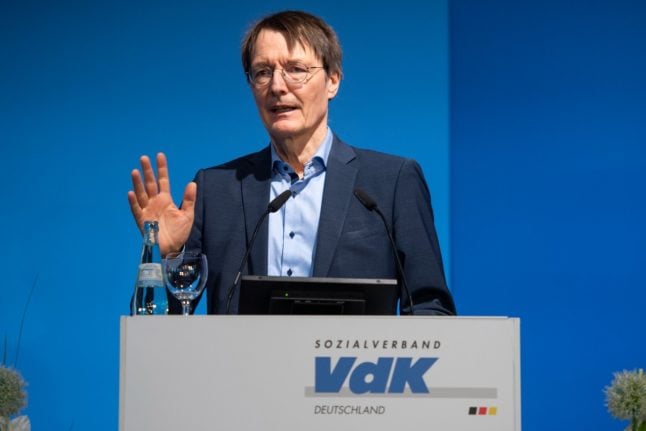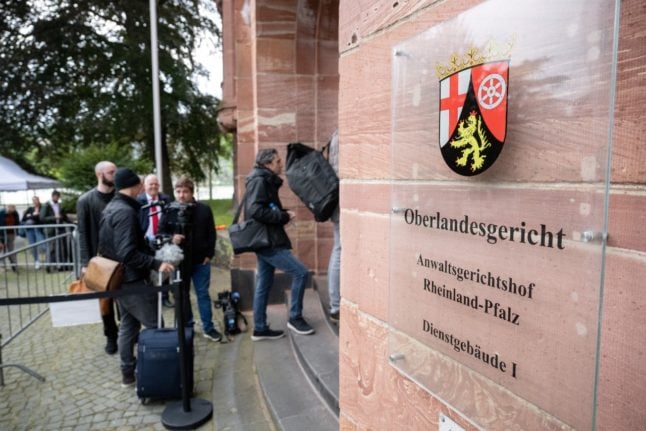Prosecutors say the four men and one woman wanted to “trigger civil war-like conditions in Germany by means of violence… to cause the overthrow of the government and parliamentary democracy”.
The plot included plans to violently abduct Health Minister Karl Lauterbach — unpopular among far-right groups because of anti-Covid measures.
The only female suspect — named as Elisabeth R. — is thought to have been the ringleader.
READ ALSO: German woman arrested over plot to kidnap health minister
The 75-year-old entered the courtroom on tiptoe and wearing no shoes, with two court officials holding her up by the arms.
As the indictment was read out, she sat with her head bent over a rubbish bin saying that she was “afraid of throwing up”.
Elisabeth R. is said to have convinced the group that the German empire of the 19th century was the country’s true system of government, and an authoritarian ruling order should be re established.
Such beliefs are typical of the far-right Reichsbürger (Citizens of the Reich) movement, which rejects Germany’s democratic institutions and has attracted a growing number of followers.
“In order to be able to put her ideas into practice, R. sought out persons who were prepared to depose the government by force,” prosecutor Wolfgang Barrot told the court.
‘Social polarisation’
They planned to trigger a nationwide blackout by damaging power lines before abducting Lauterbach, killing his bodyguards if necessary.
They then wanted to call a special assembly in Berlin to publicly depose the government and appoint a new leader, prosecutors said.
According to the indictment, they had tried to contact Russian President Vladimir Putin to ask for support for their new government.
Lauterbach on Wednesday called for “tough” sentences for the suspects to help “deter copycats”.
Threats and even murder plots against politicians are on the rise thanks to “strong social polarisation” in German society, especially on online platforms, he said.

READ ALSO: Germany reports record in politically motivated crime
Threats and even murder plots against politicians are on the rise thanks to “strong social polarisation” in German society, especially on online platforms, he said.
“Society continues to radicalise in extreme ways… It’s not letting up. We will have even bigger problems,” he told Der Spiegel magazine.
Long dismissed by critics as malcontents and oddballs, the Reichsbürger have become increasingly radicalised in recent years and are seen as a growing security threat.
Another far-right group planning to overthrow the government — including an ex-MP and aristocrat — was uncovered in December, though authorities have not linked that group to the one that plotted to abduct Lauterbach.



 Please whitelist us to continue reading.
Please whitelist us to continue reading.
Member comments